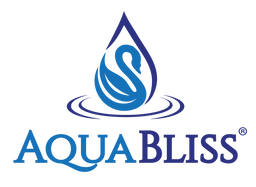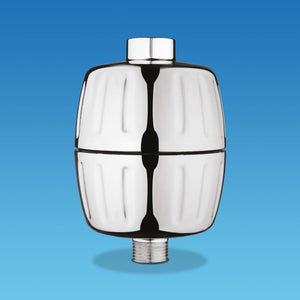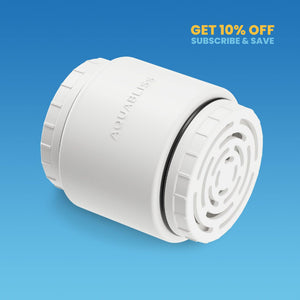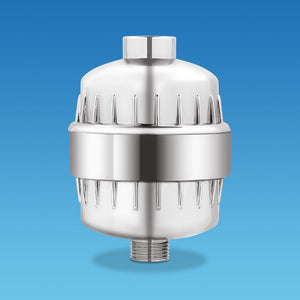The debate of hard water vs. soft water continues to be a source of confusion, and it’s crucial to understand the differences, as both types of water impact our water quality, health, and household appliances in unique ways. So, what is hard water, and what is soft water?
When considering hard water vs soft water, it’s essential to examine how each type affects drinking water, skin, and hair. In this post, we’ll explore these questions and the health risks associated with each type, the role of water softeners, and the pros and cons of choosing hard or soft water in your home.
What Is Hard Water and Soft Water?

The main difference between hard water and soft water lies in mineral content. Hard water contains higher levels of dissolved minerals—especially calcium and magnesium—whereas soft water has lower mineral concentrations.
These minerals, also known as hardness minerals, are absorbed by water as it flows through layers of calcium carbonate deposits and rocks, particularly limestone and chalk.
Hard Water
Water with high mineral content due to calcium, magnesium, and other minerals that can cause mineral buildup and scale buildup on fixtures, shower doors, and pipes. This can lead to a noticeable white film and even mineral stains on surfaces.
Soft Water
Water that’s treated to have lower levels of dissolved minerals. Softened water usually contains more sodium ions due to the process of ion exchange, which swaps out calcium and magnesium for sodium to reduce mineral content.
These distinctions are important because the effects of hard and soft water extend beyond the shower and can influence everything from your water heater efficiency to your personal preference for taste.
Why Does Hard Water Occur?
Hard water is common because water supply sources, like rivers and wells, pick up minerals as they flow through the earth. This is why the water hardness scale varies by location, depending on local geology and water sourcing.
Hard water leaves behind a trail of mineral deposits and scale buildup, which can clog pipes, reduce the lifespan of appliances, and make washing more challenging due to the reduced lathering of soap.
In fact, hot water heaters are particularly susceptible to damage from limescale buildup, as the heat can cause dissolved minerals to solidify even faster, which adds strain to the system and can require costly maintenance.
Is Hard Water Safe to Drink?

Generally, hard water is considered perfectly safe for drinking and even contains essential minerals like calcium and magnesium. Some experts suggest that mineral water from a hard water source could offer health benefits, such as helping to support bone health, cardiovascular function, and preventive medicine practices.
However, too much mineral intake can pose a few health risks. Excess sodium from softened water, for instance, may contribute to high blood pressure in individuals sensitive to additional sodium.
Hard water also does not always contain contaminants, but it may occasionally carry chlorine or unwanted particles, making water filters an excellent preventive step.
Solutions for Hard Water
Water softeners can mitigate the issues of hard water by removing calcium and magnesium through water softening processes.
Here are several effective solutions:
- Install a Water Softener System: A water softener exchanges hardness minerals like calcium and magnesium for sodium ions through a process known as ion exchange. This reduces scale buildup and minimizes mineral deposits.
- Use a Filtration System: Water filters can help reduce contaminants in tap water. For shower-specific needs, try using a showerhead filter like those offered by AquaBliss to reduce impurities from shower water, reducing skin irritation.
- Regular Appliance Maintenance: For those who don’t have a water softener, periodically clean hot water heaters, faucets, and showerheads with vinegar or a descaling agent to remove mineral buildup.
How to Measure Water Hardness
If you’re curious about your water hardness, consider a water hardness test kit. These kits allow you to measure the GPG (grains per gallon) or the water hardness scale levels in your home. If your GPG measures above 7, you have hard water, while anything below 3 GPG is considered soft.
Health Effects of Hard and Soft Water
While hard water provides essential minerals, soft water can be gentler on your skin and appliances. However, those with sensitive skin or certain skin conditions may experience dryness from hard water exposure.
In a study published in the International Journal, research suggests that while hard water has some health benefits due to its mineral content, it may also exacerbate existing skin issues. This highlights the ongoing debate of hard water vs soft water and their respective impacts on health and household needs.
Moreover, if your water supply has high levels of contaminants, filtration systems are highly recommended to ensure safe drinking water.
Making the Right Choice: Hard or Soft Water?
Choosing between hard and soft water often comes down to personal preference and household needs. If you live in a hard water area, investing in a water softener or filtration system can help protect your skin, hair, and appliances from the effects of high mineral content.
AquaBliss offers water filters designed to reduce unwanted minerals and contaminants, helping you to achieve softer water without compromising on essential minerals.
For those who enjoy the taste of hard water and want the essential minerals, be mindful of the mineral buildup and stay proactive with cleaning routines. Balancing health effects with maintenance can help you enjoy the best of both water types.
Conclusion: Hard Water vs Soft Water – Making an Informed Decision

Whether you have hard water or soft water, knowing the difference between hard water and soft water can empower you to make informed choices. Each type of water has its own health effects and benefits, and understanding these can guide you in choosing the right filtration or water softening solution for your household.
For homeowners who want to preserve the quality of their water heater or improve their skin and hair health, the right water treatment approach can make all the difference. AquaBliss is committed to helping you navigate the hard water vs soft water discussion, so you can enjoy clean, safe, and high-quality water.







